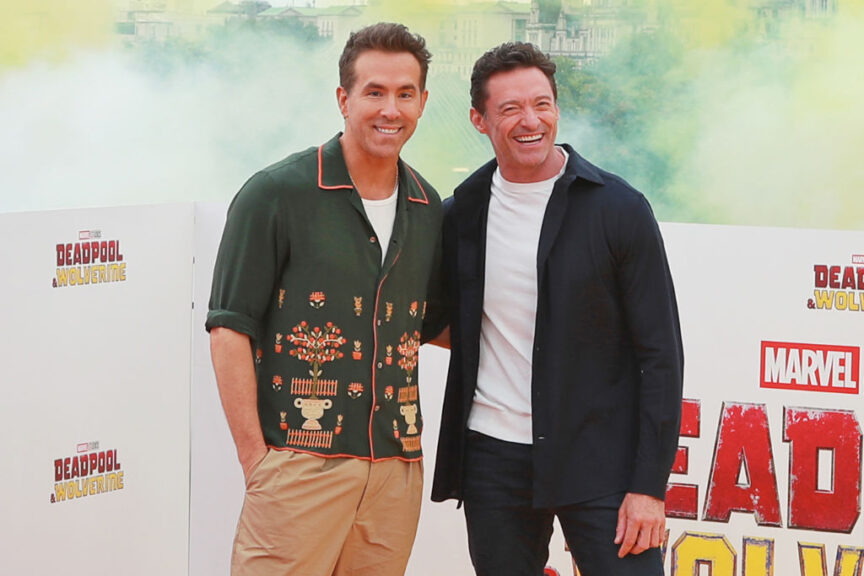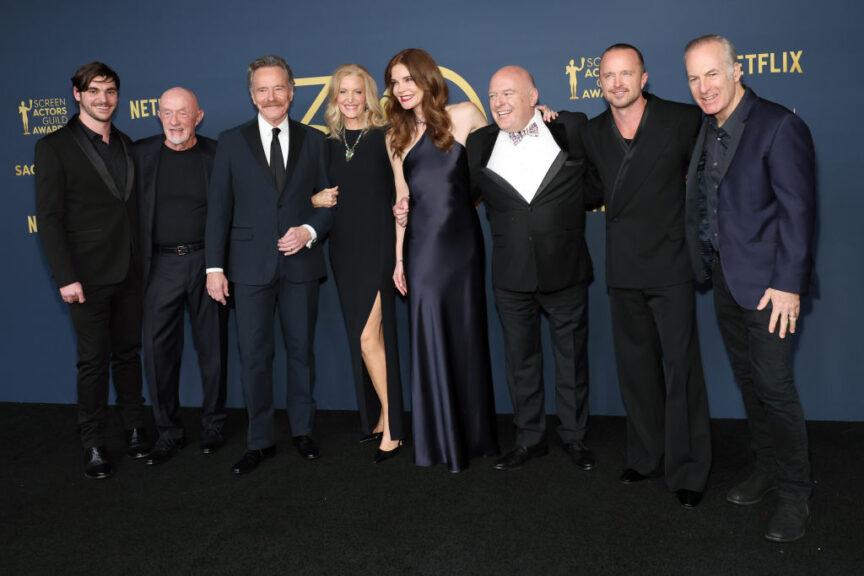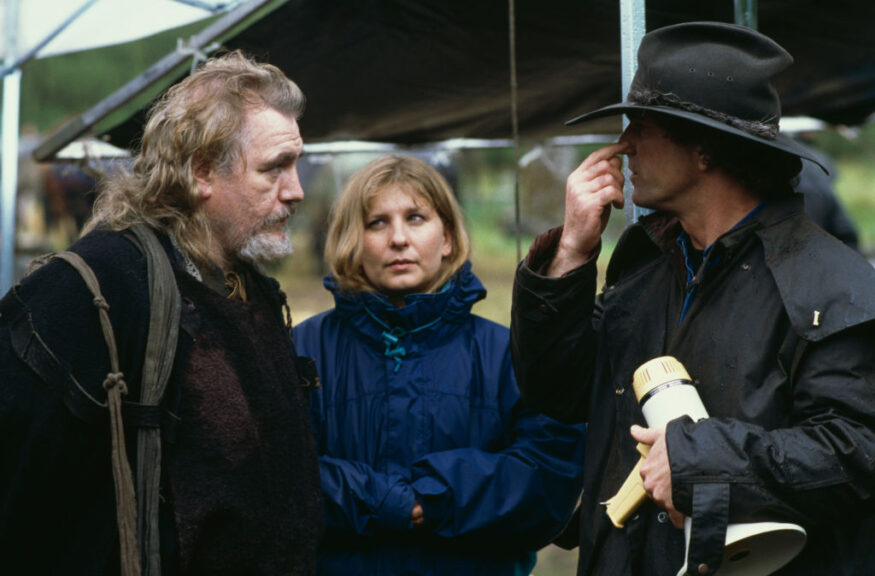Actor Brian Cox bounces between film and TV shows with the greatest of ease.
Now, the “Succession” alum insists the magic now happens on the small screen following comments made at the Edinburgh International Film Festival Aug. 20.
“What’s happened is that television is doing what cinema used to do … I think cinema is in a very bad way. I think it’s lost its place because of, partly, the grandiose element between Marvel, DC and all of that. And I think it’s beginning to implode, actually. You’re kind of losing the plot.”
Cox, who ironically played the heavy in 2003’s “X2: X-Men United,” called the recent smash “Deadpool & Wolverine” “party time.”
Is he wrong?

Dave Benett/WireImage
Yes, the theatrical box office made an impressive comeback this summer thanks to the aforementioned MCU smash, “Inside Out 2” and “Despicable Me 4.”
Will any of those films stand out in five years? Ten? Can anyone remember the last few Best Picture winners? For the record, it’s “Oppenheimer,” “Everything Everywhere All at Once,” “CODA,” “Nomadland” and “Parasite” in descending order.
TV continually churns out both binge-worthy shows and dramas that immediately leave us addicted. Think “The Bear,” “Succession,” “House of the Dragon,” “Baby Reindeer” and “Severance.”
Some of the most popular actors now regularly appear on the small screen. Nicole Kidman. Jeff Bridges. Hugh Grant. Tom Hardy. Cillian Murphy. Meryl Streep. Harrison Ford. Chris Pratt. Mahershala Ali.
A small sub-section of superstars resist TV, like Tom Cruise, Brad Pitt and Denzel Washington. The rest? They can’t wait for HBO, Netflix or another streaming platform to ring up their agent.
You can blame iconic shows like “The Shield,” “The Wire,” “The Sopranos” and “Breaking Bad’ for changing the TV landscape for the better.
So much better.

Monica Schipper/FilmMagic. Getty Images.
Those shows featured film-quality production, exquisite storylines and performances that matured from season to season. They changed both TV and the way we consider small-screen originals.
Other industry changes helped shift TV into the cultural driver’s seat.
TV originals no longer demand 20-plus episodes from an actor’s work schedule. A series may wrap in anywhere from six to 12 installments, freeing up superstars to tackle film and TV projects.
Plus, Kevin Spacey, currently blacklisted for sexual abuse allegations, helped change this dynamic for actors everywhere. The two-time Oscar winner agreed to star in one of Netflix’s first major originals, the 2013 series “House of Cards.”
He rolled the professional dice and won. Now, most stars are happy to follow the path he blazed.
Tickets for “Am I Racist?” are on sale NOW! Buy here for a theater near you.
Another reason TV often laps film? Hollywood’s chronic fear factor. Studios know the pandemic helped sever the bond between consumer and movie theater. They saw how many Americans stayed home to watch original fare on streaming platforms, a pattern still in place despite the pandemic’s end.
They’re desperate to keep the theatrical experience alive and profitable. Risk-averse executives crave the sugar rush of sequels, prequels and reboots. The bigger and louder, the better. And the bigger box office receipts, more than likely.
The top 10 box office winners in 2024 are all sequels, prequels, reboots and re-imaginings.
Plus, film budgets have grown so large that any attempt at nuance, creativity or eclectic storytelling is pushed aside. It’s lowest common denominator storytelling, and it must drive Cox crazy.
He’s not alone.
Modern TV also offers advantages that movies can’t replicate. No matter how good an actor or film may be, there’s a three-hour window at best to tell the story. Now, think of how Bryan Cranston approaches his iconic Walter White character in later “Breaking Bad” seasons.
He’s literally had years to grow into the role, to find new shadings to bring to his antihero.
Movie sequels could offer something similar, but they often defer to bigger! Louder! Faster! model.
The irony behind Cox’s statement? When he broke into the business with films like 1986’s “Manhunter,” actors longed to leave TV for film. Permanently.

Mel Gibson (right) directs actor Brian Cox in the film ‘Braveheart’, 1995. (Photo by Richard Blanshard/Getty Images)
That’s how Bruce Willis treated his breakout 1980s series, “Moonlighting.” The affable star couldn’t wait to leave the small screen behind once “Die Hard” hit it big.
Bye, bye, TV.
Willis, who retired for health reasons two years ago, never looked back. Nor did other former TV stars like Clint Eastwood, Will Smith and George Clooney. TV was where young actors worked before getting called up to the big leagues.
Hollywood movies.
Now, actors understand they won’t necessarily be challenged by film projects. When “Top Gun: Maverick” alum Glen Powell’s star began to rise guess what happened next? Hollywood gave him roles in a remake “Backdraft” and “Twisters,” a reboot of the 1990s hit.
He’ll probably be itching to hear a TV pitch or two before long.
Hugh Grant’s recent career revival allowed him to play an orange-faced little person in 2023’s “Wonka.” On the small screen, his devastating turn in Max’s “The Undoing,” playing a philandering doctor accused of murder, likely gave him far more professional satisfaction.
Cox is an actor’s actor, a veteran who understands both the business and a hunger to create something memorable on screen.
Now, he understands that’s more likely to happen on a TV show.
* * *
Christian Toto is an award-winning journalist, movie critic and editor of HollywoodInToto.com. He previously served as associate editor with Breitbart News’ Big Hollywood. Follow him at @HollywoodInToto.
The views expressed in this piece are those of the author and do not necessarily represent those of The Daily Wire.
WATCH THE TRAILER FOR ‘AM I RACIST?’ — A MATT WALSH COMEDY ON DEI

Continue reading this exclusive article and join the conversation, plus watch free videos on DW+
Already a member?

